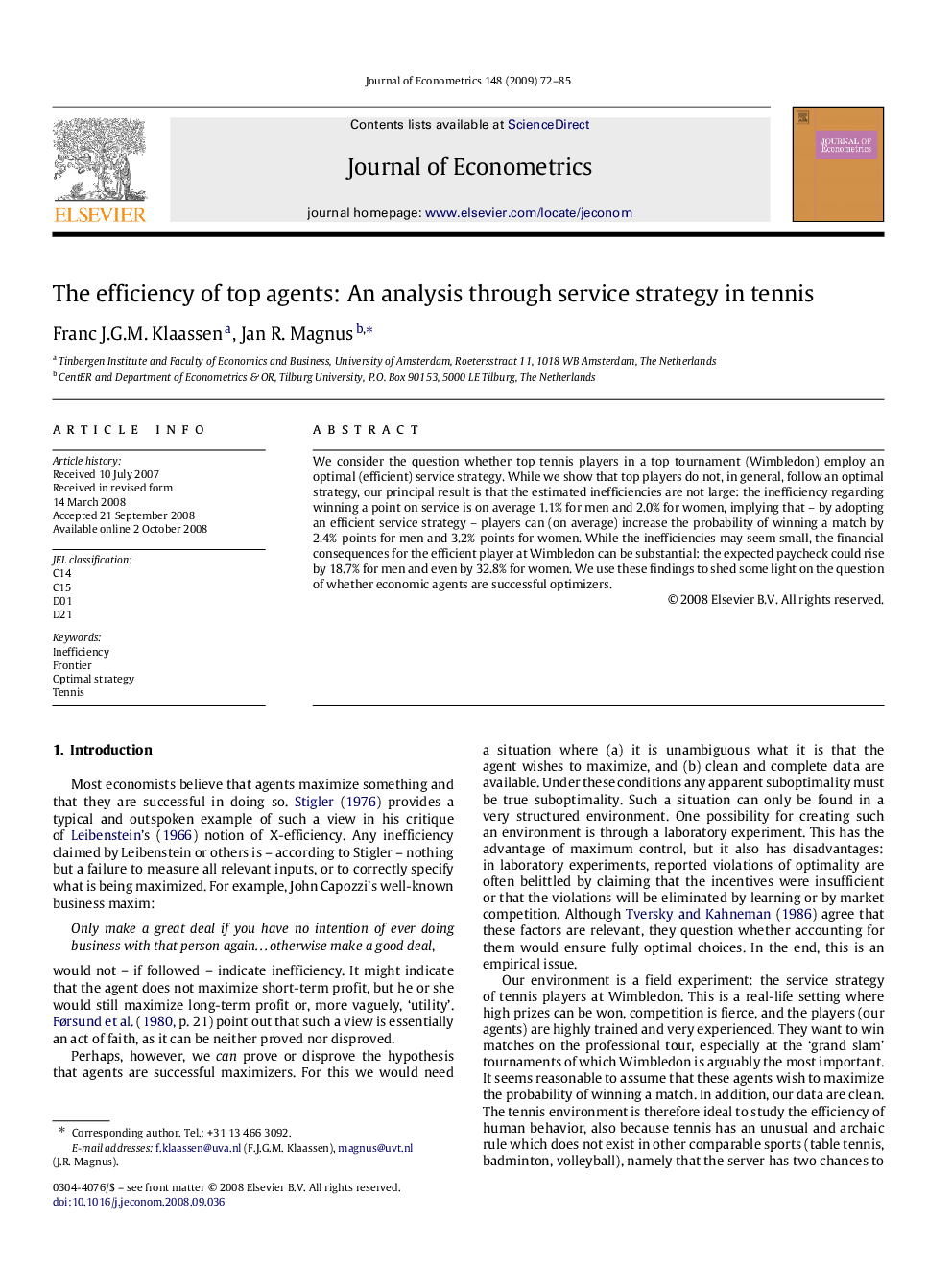| Article ID | Journal | Published Year | Pages | File Type |
|---|---|---|---|---|
| 5097289 | Journal of Econometrics | 2009 | 14 Pages |
Abstract
We consider the question whether top tennis players in a top tournament (Wimbledon) employ an optimal (efficient) service strategy. While we show that top players do not, in general, follow an optimal strategy, our principal result is that the estimated inefficiencies are not large: the inefficiency regarding winning a point on service is on average 1.1% for men and 2.0% for women, implying that-by adopting an efficient service strategy-players can (on average) increase the probability of winning a match by 2.4%-points for men and 3.2%-points for women. While the inefficiencies may seem small, the financial consequences for the efficient player at Wimbledon can be substantial: the expected paycheck could rise by 18.7% for men and even by 32.8% for women. We use these findings to shed some light on the question of whether economic agents are successful optimizers.
Related Topics
Physical Sciences and Engineering
Mathematics
Statistics and Probability
Authors
Franc J.G.M. Klaassen, Jan R. Magnus,
